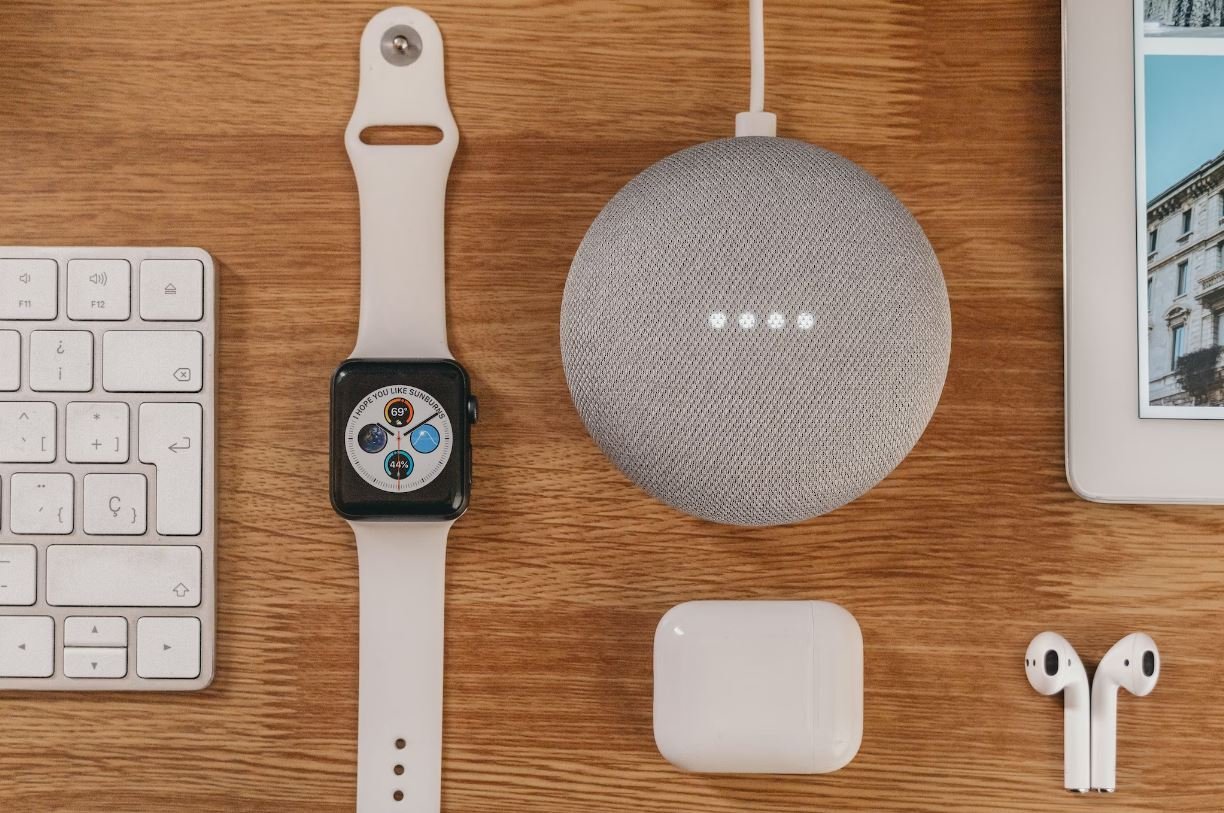How Artificial Intelligence Is Changing Nursing
Artificial intelligence (AI) is revolutionizing various industries, and healthcare is no exception. With advancements in technology, AI has started to play a significant role in transforming nursing practices. From improving patient care to increasing efficiency, AI is shaping the future of nursing.
Key Takeaways:
- Artificial intelligence is revolutionizing nursing practices.
- AI is improving patient care and increasing efficiency in healthcare.
- Nurses are embracing AI technologies to enhance their skills and abilities.
AI is empowering nurses by providing them with tools and resources to deliver better patient care. One of the significant contributions of AI in nursing is the development of virtual nursing assistants. These virtual assistants can perform various tasks, such as monitoring vital signs, reminding patients to take medication, and even offering emotional support. With AI-powered virtual nursing assistants, nurses can focus more on critical patient care activities.
AI-powered virtual nursing assistants are revolutionizing patient care by taking over routine tasks and allowing nurses to focus on critical activities.
Beyond virtual assistants, AI is also being used in predictive analytics, identifying patients at risk of developing certain conditions or deteriorating health. This early detection helps nurses intervene promptly, preventing adverse outcomes and improving patient outcomes. AI algorithms analyze patient data, such as medical history, lab results, and vital signs, to identify patterns and provide nurses with actionable insights.
Transforming Patient Care with AI
AI is transforming patient care by:
- Improving diagnosis accuracy and treatment plans.
- Enhancing medication management through automated systems.
- Providing personalized patient education and support.
Using AI algorithms, nurses can analyze vast amounts of patient data to improve diagnosis accuracy and tailor personalized treatment plans.
| Benefits of AI in Nursing | Challenges |
|---|---|
|
|
Nurses are embracing AI technologies to enhance their skills and abilities. AI-powered tools, such as electronic health records (EHRs), assist nurses in managing patient data efficiently. EHRs provide nurses with quick access to a patient’s medical history, lab results, and other vital information. This streamlined access to information improves communication and collaboration among healthcare professionals, leading to more coordinated and effective care.
Nurses are adopting AI-powered tools like electronic health records to efficiently manage patient data and improve collaboration among healthcare professionals.
While the integration of AI in nursing brings numerous benefits, it also raises concerns. Privacy and data security are significant challenges in the adoption of AI technologies. Protecting patient information from unauthorized access and maintaining confidentiality is crucial. Healthcare organizations and nurses need to ensure robust security measures are in place to safeguard patient data.
Embracing AI for Better Nursing Practices
Nursing organizations and institutions must:
- Provide training and education on AI technologies.
- Address ethical considerations in AI implementation.
- Ensure transparency and explainability of AI algorithms.
By addressing ethical considerations and providing proper training, nursing organizations can create a workforce that effectively utilizes AI technologies for better patient care.
| A Snapshot of AI Use in Nursing | Benefits | Challenges |
|---|---|---|
| Virtual nursing assistants |
|
|
| Predictive analytics |
|
|
| Electronic health records |
|
|
Overall, AI is reshaping nursing practices and revolutionizing patient care. As technology continues to advance, the integration of AI in nursing will only increase. Nurses must embrace these technological advancements while considering ethical implications and maintaining a human connection with patients.

Common Misconceptions
Misconception #1: AI will replace nurses entirely
One common misconception about artificial intelligence (AI) in nursing is that it will replace nurses altogether. While AI has the potential to automate certain tasks, it cannot fully replace the human touch and critical thinking skills that nurses possess.
- AI can assist in repetitive tasks, allowing nurses to focus on more complex patient needs.
- Nurses play an essential role in providing emotional support and empathy, which AI cannot replicate.
- The human connection between nurses and patients is crucial for holistic care and cannot be replaced by AI.
Misconception #2: AI will make nurses obsolete
Another misconception is that AI will render nurses obsolete, making their knowledge and skills unnecessary. In reality, AI serves as a powerful tool to augment nursing practice and enhance quality of care.
- Nurses are essential in interpreting and applying AI-generated data and insights to individual patient cases.
- Nurses possess the clinical expertise to make critical decisions and judgments, which AI lacks.
- AI and nurses can collaborate to provide more accurate diagnoses and treatment plans.
Misconception #3: AI will undermine job security for nurses
Some believe that the rise of AI in nursing will lead to reduced job security for nurses, as machines take over their roles. However, this is a misconception as AI adds value to the nursing profession instead of diminishing it.
- Nurses can acquire new skills and specialize in areas where AI can complement their work.
- The demand for nurses is growing, and AI can help alleviate the existing shortage by optimizing workflows and enhancing efficiency.
- Nurses can leverage AI tools to improve patient outcomes and make their job more rewarding.
Misconception #4: AI will replace the need for nursing education
Some believe that AI will eliminate the need for nursing education, as machines can perform tasks traditionally taught in nursing programs. However, this is far from the truth as nursing education goes beyond technical skills.
- Nursing education emphasizes critical thinking, problem-solving, and ethical decision-making, which AI cannot replicate.
- Nurses require comprehensive education to understand the complexities of human health and provide holistic care.
- AI can enhance nursing education by providing simulations and virtual training, but it cannot replace the foundational knowledge gained through formal education programs.
Misconception #5: AI will jeopardize patient privacy and security
Another common misconception is that AI in nursing may compromise patient privacy and security. While it is essential to address these concerns, proper implementation and adherence to regulatory guidelines can mitigate any risks.
- Healthcare institutions must ensure data privacy and security protocols are in place when implementing AI systems.
- AI tools can be designed with encryption and strict access controls to protect patient information.
- Increased transparency and openness in AI algorithms can help build trust and support patient privacy.

Introduction
Artificial intelligence (AI) is revolutionizing various industries, including healthcare. Nursing, in particular, is undergoing significant transformation due to the integration of AI technology. This article explores ten captivating aspects of how AI is changing the landscape of nursing.
Nurse-Patient Ratio and AI
AI technology is enhancing patient care by addressing the issue of nurse-patient ratios. With AI-powered chatbots and virtual nurses, patients can receive immediate attention and guidance, reducing the strain on nursing staff.
| Point | Data/Info |
|---|---|
| Reduced human error | AI systems assist nurses by providing accurate information and minimizing human error in diagnosis and treatment. |
| Improved patient monitoring | Sensors and wearable devices connected to AI systems enable real-time patient monitoring and prompt alerts in case of any irregularities. |
| Enhanced efficiency | AI can automate routine tasks, such as data entry and scheduling, allowing nurses to focus more on direct patient care. |
Early Detection of Illnesses
AI algorithms play a vital role in detecting illnesses at an early stage, leading to more timely interventions and improved patient outcomes.
| Point | Data/Info |
|---|---|
| Accurate diagnosis | AI-powered diagnostic systems combine patient data with vast medical knowledge to provide accurate and timely diagnoses. |
| Predictive analytics | By analyzing large volumes of patient data, AI algorithms can identify patterns and predict potential health issues before symptoms become evident. |
| Improved cancer detection | AI-based imaging technology assists in the early identification of cancerous tumors, enabling quicker treatment initiation and better survival rates. |
Personalized Patient Care
AI is revolutionizing patient care by tailoring treatment plans and interventions to meet individual needs.
| Point | Data/Info |
|---|---|
| Genetic profiling | AI algorithms process genetic information to predict patient responses to certain medications and treatments, allowing for personalized care plans. |
| Smart monitoring devices | IoT-enabled devices equipped with AI technology monitor patients’ vital signs continuously and adjust treatment plans accordingly. |
| Behavioral analysis | AI systems can analyze patients’ behavior patterns to identify potential health risks and provide tailored interventions for healthier lifestyles. |
Improved Communication and Collaboration
AI tools facilitate seamless communication and collaboration among healthcare professionals, enhancing overall patient care.
| Point | Data/Info |
|---|---|
| Language translation | AI-powered translation tools bridge language barriers among nursing staff and patients, ensuring effective communication. |
| Remote collaboration | Virtual reality platforms enable nurses from different locations to collaborate on complex procedures, offering expertise and support in real-time. |
| Informed decision-making | AI systems process vast amounts of medical literature, providing nurses with access to up-to-date information for making well-informed decisions. |
Patient Data Management
AI streamlines the management of patient data, ensuring secure and efficient access to critical information.
| Point | Data/Info |
|---|---|
| Automated documentation | AI transcription tools convert spoken patient information into electronic health records, eliminating manual data entry. |
| Intelligent data analysis | AI algorithms process complex patient data, providing insights and trends that aid in decision-making and care planning. |
| Data security | AI-powered encryption and authentication measures ensure the security and privacy of patient records, safeguarding sensitive information. |
AI in Mental Health Care
AI technology is revolutionizing mental health care, aiding in the diagnosis, treatment, and support of individuals with mental health conditions.
| Point | Data/Info |
|---|---|
| Virtual therapists | AI-powered virtual therapists offer counseling and therapy sessions, providing support to individuals experiencing mental health challenges. |
| Mood monitoring | AI algorithms analyze speech patterns, facial expressions, and behavior to track and monitor changes in individuals’ moods and emotions. |
| Personalized treatment plans | AI systems consider individual patient data to develop customized treatment plans that cater to specific mental health conditions and needs. |
Transforming Nurse Education
AI is reshaping nurse education by providing innovative tools and resources for enhanced learning experiences.
| Point | Data/Info |
|---|---|
| Virtual reality simulation | AI-powered virtual reality simulations allow nursing students to practice various scenarios in a controlled and safe environment. |
| Adaptive learning platforms | AI-based platforms personalize learning experiences by tailoring content to students’ individual needs, improving knowledge retention. |
| Real-time feedback | AI systems provide instant feedback to nursing students, aiding in the development of clinical skills and promoting continuous improvement. |
AI Robotics in Nursing
AI-powered robots are increasingly being utilized in nursing to support caregivers and improve patient care.
| Point | Data/Info |
|---|---|
| Patient assistance | Robots equipped with AI technology can assist patients with mobility, medication reminders, and daily tasks, augmenting nursing care. |
| Efficient inventory management | AI robots automatically track and manage inventory, ensuring availability of critical supplies and reducing manual inventory checks. |
| Robotic surgeries | AI-powered surgical robots aid surgeons in performing intricate procedures with precision, reducing risks and improving patient outcomes. |
Conclusion
The integration of artificial intelligence in nursing heralds remarkable advancements in patient care, early detection of illnesses, personalized treatments, communication, data management, mental health support, nurse education, and robotics, leading to improved healthcare outcomes across the board. As AI continues to evolve, nursing professionals possess a powerful tool that enhances their capabilities, augments their knowledge, and ultimately transforms the nursing profession as a whole.
Frequently Asked Questions
How Artificial Intelligence Is Changing Nursing
What is artificial intelligence (AI)?
that are programmed to think, learn, and problem-solve.
How is artificial intelligence used in nursing?
decision-making, automate administrative tasks, and enhance diagnosis and treatment processes.
What are some examples of AI applications in nursing?
analytics for early disease detection, robot-assisted surgery, and virtual reality for training and
education purposes.
How does AI improve patient care in nursing?
personalized treatment plans, medication reminders, and identifying patterns in patient data for early
intervention.
Can AI replace human nurses?
and streamline certain tasks, allowing nurses to focus more on direct patient care.
What are the benefits of AI in nursing?
and treatment, reduced workload for healthcare professionals, and better patient outcomes.
Are there any ethical concerns surrounding AI in nursing?
potential for biases in AI algorithms, and the impact on the role of human nurses in providing emotional
support and empathy.
Will AI replace the need for nurses in the future?
in the future. The human touch, critical thinking, and empathy provided by nurses are essential
components of patient care.
How can nurses prepare for the integration of AI in healthcare?
advancements, learning about AI applications in healthcare, and acquiring the necessary skills to
effectively collaborate with AI systems.
Are there any challenges in implementing AI in nursing?
displacement, ensuring ethical use of AI, and the need for ongoing training and support for healthcare
professionals.




